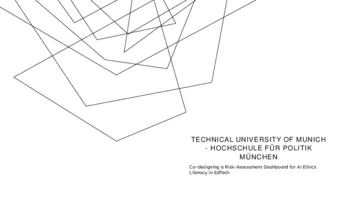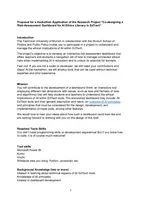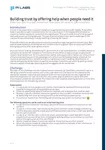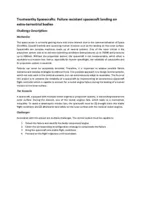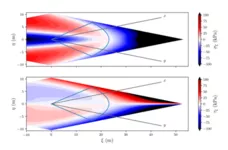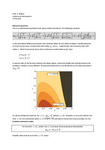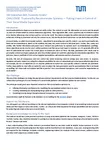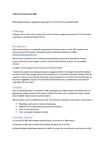TUM Science Hackathon 2023
"Trustworthy Systems"
Congratulations to our winning teams
- Spacecraft Landing Team 3 with its project STELLAR (view presentation)
- Crash Detection Team 1 with its project Smart Cushion to prevent pressure ulcers (view presentation)
- AI Ethics Team 1 with its project Smart Green Bio 2.0 (view presentation)
Participants
Students and Ph.D.-students from diverse fields of study from all universities of Munich were invited to participate in the #ScienceHack. We were very happy to welcome 81 participants this year. They displayed their creativity, passion and problem-solving skills towards solving challenges provided by the industrial partners and exceptional chairs of TUM.
Thank you!
Thanks to all participants, our jury members and our industrial as well as academic partners who made the TUM Science Hackathon possible! A very special thank you goes to all members of Taskforce CAP.
Partners and Challenges 2023

Challenge
Co-designing a Risk-Assessment Dashboard for AI Ethics / Literacy in EdTech
Description
Introduction
The Technical University of Munich in collaboration with the Munich School of Politics and Public Policy invites you to participate in a project to understand and manage the ethical implications of AI within EdTech.
The project’s objective is to develop an interactive risk assessment dashboard that offers teachers and students a navigation aid of how to manage connected ethical risks when implementing AI in education and to unlock its potential for learners.
Don’t worry: If you are not a coder or a developer, we still need your contributions and ideas! At the hackathon, we will employ tools that can be used without technical expertise and prior experience.
Mission
You will contribute to the development of a dashboard (think of it as an interactive tool displaying different risk dimensions with issues, such as bias and fairness of data and algorithms) that will help students and teachers to understand the ethical implications of AI within EdTech tools. The envisioned dashboard may include: AI EdTech tools and their general description and reach, an overview of AI principles, and principles that must be considered for the design, development, and implementation of these tools, among other features.
We would love to hear your ideas about how such a dashboard could look like and are looking forward to working with you on the design of this tool!
Skills required
You don’t need programming skills or development experience! But if you know how to code, it is of course much welcome!
Tool skills:
- Microsoft Power BI
- Kumu
- Vizzlo
- Any other Skills are welcome, such as: Python, Javascript etc.
Background Knowledge (two or more):
- Interest in learning about technical aspects of AI EdTech tools
- Knowledge of AI principles
- Interest in dashboard development
- Skills in visualization design (layout)
- Good summarizing skills
- Teamwork
Documents
Challenge
Building trust by offering help when people need it - Effective use of crash detection functions of retrofit UBI solutions.
Description
Introduction
A trend in the automotive insurance market are usage based insurance (UBI) models. These offers make it possible to open new dimensions for risk classification in the largely differentiated car insurance market via data on customers' driving behavior. This can include time of driving, type of road used as well as driving behavior. This use of personal data in turn poses challenges to the trustworthiness and privacy-friendly handling of data by the insurer.
Those UBI models are usually centered around a smartphone app that gathers relevant data. More sophisticated solutions are combined with retrofit sensors to gather more accurate and reliable driving data and to offer value-added services.
One such service is being developed by PI Labs in form of a live crash detection. It enables insurance companies to reduce the timespan to First Notice of Loss (FNOL) as well as to get an automated incident severity estimate. For this, also minor crashes, starting at 5 kph or below, are relevant from a financial perspective even if the passengers of a vehicle are fortunately mostly unharmed. For insurance companies this is beneficial since it enables quick claim handling, identification of liability and guiding policy holders to partner workshops. Customers can profit by getting instant help and support in damage reporting as well as suggestions for workshops.
Challenge
The topic of this challenge is to think about how an insurance can build their customers’ trust in a UBI using a retrofit sensor solution with a live crash detection. The focus for this should be the interaction between insurance and customer when the live crash detection was triggered and potential preparation for such an event. For this a wide range of potential crashes and other circumstances should be considered. This means the crash could be anything between a minor dent and a disastrous life-threatening collision.
Expectations:
- It is up to you to find categories of crashes, that should be handled differently and that could be distinguished using available sensor data.
- Create an opportunity space of interaction methods and strategies that could be used.
- Develop a specific customer interaction guideline, that considers immediate needs as well as builds long term trust by taking yourself as the potential customer group.
- Present your results in an interesting and convincing way to win the Science Hack.
The following questions can be used as an initial starting point:
- In case of a crash detection how (App, Call) and how quickly should the insurance initiate contact?
- In case of a minor crash, how would you set up the communication strategy, considering that the detection could be a false positive? (False positive means that a crash was detected but no crash occurred)
- In case of an intense crash in which the driver and passengers could have been injured, should the insurance refrain from immediately seeking contact to not distract or interfere with an emergency call and first aid efforts?
- Would it make an impact if you know whether the vehicle has an e-Call system?
- What information should be collected after a crash detection (photos, driver information, …) to streamline the insurance process.
For the retrofit sensor solution system, the following assumptions should be taken:
- Includes a 3D accelerometer and a small processor.
- Is connected wirelessly to a smartphone that provides cellular connectivity.
- An app on the smartphone could use further sensors available to the smartphone.
- An app on the smartphone could prompt the user.
- The insurance receiving the data is not the primary emergency hotline or first responder.
Skills required
Interdisciplinary team is very beneficial for getting different views on the aspects of the challenge.
- Psychology - understand what impacts customer trust and satisfaction.
- Engineering / Natural Science - understand crash dynamics and statistical classification of accelerometer data.
- Computer Science - understand the aspects in which a smartphone app could assist.
- Medicine - understand crash injuries and existing emergency and first aid procedures.
- Business / Finance / Law - understand what is important to efficiently process an insurance claim.
Challenge-specific criteria (evalutation)
We propose the following 5 rating criteria. The criteria are each specific to one of the bullet points under "Expectations" in the Challenge description. The 5 criteria should each be weighted equally (i.e. 20%).
- Crash categories:
-
- Clearly described need for each category and no redundancy
- Well-articulated and reasonable idea of how the categories could be distinguished automatically using sensor data. No need to have a working algorithm.
- Opportunity space of interaction methods and strategies:
-
- Diverse, open, interdisciplinary not just single field approaches. It would be good if several potential technical means, psychological approaches and achievable practical value for insurance and customers are presented.
- Specific customer interaction guideline:
-
- Very clear instruction how a customer would be contacted in one or more crash categories. Instruction should detail start, decision nodes (questions) and end nodes (when to end) of the interaction.
- Jury member specific judgment of whether they believe the approach would build customer trust in the UBI solution and could reasonably be implemented in the real world.
Document
Challenge
Open Access Database for Assessing Concrete Performance
Description
1. Background and Motivation
Concrete (or reinforced concrete) is often referred to as the material of the 20th century. Its use has enabled rapid infrastructure development all around the world leading to significant economic development. Nonetheless, one of its main components, cement (more specifically Portland cement), is responsible for around 7% of the yearly global CO2 emissions. Additionally, concrete requires the use of other limited resources, like water, sand and coarse aggregate. Therefore, the use of concrete is associated not only with a significant economical effort but also with a high environmental impact.
How is the performance of concrete related to this? Well, for each building application, the most suitable material has to be chosen. To do so, the material properties are quantified using standardized tests to evaluate if the material has sufficient resistance for its intended use. This is widely done in structural design, but not in assessing the durability of concrete structures. Current building codes and standards make use of prescriptive approaches to assess their durability. This prescriptive approach sets some minimum requirements depending on the expected exposure of the concrete, such as a sufficiently high concrete cover (more material) or a minimum required content of Portland cement (high CO2 emissions). Nevertheless, there is no clear calculation behind it nor is the performance of the material directly taken into account, as is the case in other engineering applications.
One solution is changing from a prescriptive approach to a performance-based one. Here, the material must pass a performance-based test. The test is defined using a (limit-state) equation, where the material resistance and the expected loads are evaluated. However, the material performance is sensitive to several factors and quantifying its resistance requires specialized equipment and significant time. For that reason, we think that a public database with laboratory results of different concrete mixes, subjected to different performance tests would be highly beneficial for our research and also for practical applications.
2. Our Challenge
We (the Centre for Building Materials) carry out material tests as part of our research and material test laboratory activities. We test and generate data every day that is stored in excel sheets and is available only in testing reports. Organizing this data would help our staff and students in their research and study activities. Additionally, we would like not only to make this data available for internal use but also to start a cooperative project with other testing and research institutions that serves as a material library.
Furthermore, we would like to include a calculation and visualization module to aid in the evaluation of the different concrete mixes for different exposure conditions, especially for non-expert users. One of our colleagues made a successful first version of such a library for one specific performance test of concrete. You have the flexibility to start this new version from scratch but are welcome to get some ideas from it.
Therefore, our proposed challenge is the development of a web-based application, which would enable our staff and students, as well as third parties, to store and retrieve their experimental data in a proper database. This web-based application should also be able to carry out simple calculations (preferably with Python compatibility) and provide an appealingvisualization of the datasets and the results of the calculations. Moreover, the application should be user-friendly and intuitive.
3. Our Expectations
3.1. Database (material and testing)
We have only limited experience with database implementation and could use your help here. We would like to have a database in which the concrete mix properties, the testing conditions and the related material resistances can be specified, stored and retrieved easily.
3.2. Calculation and visualization module
A lot of the calculations and modelling carried out by our staff are currently being written in Python. These scripts use the data in different ways and provide different outputs. We would like to have a web-based application that can process these scripts and provides the user with the desired result. It would be advantageous for us if the module can be extended by including new scripts in the future. Additionally, a visualization module would be greatly beneficial for the understanding of the data
(optional).
3.3. Web-based application
We would like to have a user-friendly web-based application in which our staff, students, as well as third parties, can access the database developed in 3.1. For this, we would like to have a registration module in order to secure access (i.e. creating a user profile). Additionally, we would like to have accountability of the data origin, which can be done by including an entry “contributor” and/or a “reference” column, or similar.
The web-based application should be able to carry out two (or three) main functions:
- Provide access to the material and testing database.
- Include a calculation module (as mentioned before, preferably with Python compatibility).
- Optional: include a visualization module to help the user have a better understanding of the data.
3.4. Implementation
We would prefer that the application can be hosted by the LRZ, but since we are no experts in programming or application design, we are open to your suggestions. It is very important for us, that the scripts for the calculation module can be executed using our Python scripts.
Skills required
For the first version our employee needed knowledge of the following programming languages: JSON, php, SQL. However, this second version of the database is to be developed independently from the first one. Mainly knowledge of databases (structure, data management, etc.), python (for integration of python modules) and website/app design (front end and back end) are needed for our challenge.
Challenge-specific criteria (evalutation)
A successful prototype could be followed up with a position as a student assistant to help to implement and maintain the web-based application. We are ready to provide you with our background knowledge and are enthusiastic to exchange ideas with you!
Success definition: the challenge is considered passed when:
A working website/app is created that fulfills the following database functions:
- Registration of users,
- Deposit of records according to given structure (database tables are given and submitted before the hackathon),
- Possibility to extend/modify DB tables (only by admin).
- Calculation module (modifiable only by admin):
- Compatibility with Python scripts that query the input from the users and return the results (graphs, tables and numerical answers). We provide the calculation scripts with details of input and output. The integration should be created by the participants,
- Possibility of extension/modification or addition of the Python scripts (only by the admin).
Document
Challenge
Trustworthy Spacecrafts: Failure resistant spacecraft landing on extra-terrestrial bodies
Description
Motivation
The space sector is currently gaining more and more interest due to the commercialisation of Space (OneWeb, SpaceX Starlink) and upcoming human missions such as the landing on the lunar surface. Spacecrafts are complex machines made up of several systems. One of the most critical is the propulsion system due to its extreme operating conditions (temperatures up to 3500K and pressures up to 600bar). Without the propulsion system, the spacecraft is not manoeuvrable, which often is equitable to a mission loss. Hence, especially for human spaceflight, the reliability of spacecrafts and its propulsion system is essential.
Failures can never be completely excluded. Therefore, it is important to analyse possible failure scenarios and develop strategies to address those. One possible approach is to design control systems, which not only work in the nominal scenario, but can autonomously adapt to anomalies. The focus of this project is to enhance the reliability of a spacecraft by implementing an autonomous spacecraft flight controller which is capable to account for a rocket engine failure during the landing of a human mission to the lunar surface.
The Scenario
A spacecraft, equipped with multiple rocket engines (= propulsion system), is descending towards the lunar surface. During the descent, one of the rocket engines fails, which leads to a momentum inequality. To avoid a catastrophic mission loss, the spacecraft must be (1) brought back into stable flight conditions and (2) afterwards land safely on the lunar surface with the residual rocket engines.
Skills required
Software and Hardware Tools needed:
• Computer
• Python or Matlab Skills / knowledge required:
• Physical modelling of mechanical systems
• Physical and mathematical modelling of mechanical systems (deriving the governing equations for 2D rigid body motion)
• Solving differential equations numerically
• Control Engineering
• Purpose and Goal of Control Engineering
• Classical Control Theory: Linear Time Invariant Systems described in Laplace Domain and Controller Tuning
• Modern Control Theory: MPC etc. (optional)
• Principle of Optimisation (optional)
• Machine Learning (optional)
• Dynamic Visualization (optional
Challenge-specific criteria (evalutation)
How close does the rocket land to the originally intended landing site: this depends mainly on the point in time during the landing maneuver at which the error is detected and corrected.
How softly does the rocket land on the lunar surface: impact velocity larger or smaller than critical impact velocity.
In which angle does the rocket land relative to the thrust axis of the thrusters: the smaller this angle the more uniform is the distribution of the load at the touchdown of the rocket on the surface.
In addition, the methodology chosen to achieve the goal can still be evaluated: Which control approach is chosen; simple PID (classical control technique) or modern methods, such as MPC or RL?
Document
Challenge
Autonomous Spacecraft
Description
Currently, both our Chairs are investigating autonomous-intelligent control systems for spacecraft and their propulsion systems. While this is a challenge in and of itself, such systems must also be trustworthy in order to actually be deployed and used in the real world (or space). We’d like to share part of our development environment to open up for fresh ideas to find ways to 1. Control a spacecraft using AI & 2. Do so in a trustworthy way, so the human operator has confidence in the choices of the spacecraft being responsible!
The challenge will consist of the following:
- We will provide a digital twin of one or multiple spacecraft with a mission scenario & objective in orbit – wrapped to fit the (open source) OpenAI gym API for reinforcement learning; making interfacing for the participants as low-threshold as possible so they can focus on the task at hand from the start.
- Training an autonomous agent that has to prove its performance on the task provided. With metrics such as success rate, energy & propellant consumption and deviation from critical mission objectives.
- Figuring out ways to ensure trustworthiness in operation of the approach and agent trained – instead of it being a blackbox, without reasoning behind the actions taken.
- Bonus: Wrap the trustworthy, autonomous spacecraft control system into a viable business case, including working out the economical value gained through this approach!
Skills required
- Python with OpenAI gym package installed.
- Tensorflow / Keras packages will likely prove helpful.
- PyGame, PoliAstro, AstroPy and some more to be able to run the digital twin simulation.
- Hardware capable of training with reinforcement algorithms will come in handy, but is not absolutely required.
List of knowledge background:
- Basic understanding of spaceflight and orbital mechanics will be helpful but is not mandatory!
- Knowledge of AI and in particular reinforcement learning will come in handy.
- Basic coding skills, especially Python will be beneficial.
- Ability to imagine the point of view of a spacecraft operator – to be able to judge trustworthiness from that stakeholder’s view.
Challenge-specific criteria (evalutation)
The challenge can be considered successful if an agent is implemented that can control the satellite of the specified framework within the specifications. This means that there is a defined reward that is set to zero if certain framework conditions are not met.
To evaluate and compare successful teams, the numerical value of the reward can be used as an objective criterion. The better it is, the better the implementation on the given problem.
In addition, the 'Trustworthiness' issue of the hackathon should be considered in the evaluation with the following criteria:
- Transparency: How transparent and comprehensible/justifiable are the actions of the autonomous agent?
- Robustness & Reliability: How was the performance of the agent ensured in the face of changing conditions (e.g. degradation) over time?
- Human Interaction: How is the interaction with the operators of the satellite on Earth? Would the autonomous agent be fully trusted with the mission success of an expensive satellite?
As well as:
- Bonus: Could a promising business model be developed around the technology?
Challenge
Smart visualization of surface stresses
Description
Motivation
Visualizing complex information is nowadays crucial to communicate technical and scientific results. The computational tools to perform mechanical and structural simulations are highly developed, and in research environments, accurate results of simulations can be generated in the form of datasets. Visualizing the results in a meaningful way requires sometimes 3rd party software that does not always provide the desired intuitive understanding of how the structure or material is working.
Vision
Our vision is a web-based tool to have 3D representations of given stress states on curved surfaces by combining the different parameters and their magnitudes: stress components, principal stresses, principal directions, force flow…
Challenge details
You will be provided algorithmic rules to generate parameter-based datasets defining a 3D surface and the corresponding stress states in the form of stress components. Your goals are:
- Develop a concept to visualize stress states on a surface in meaningful ways (several alternative visualization modes are encouraged).
- Select a web-based framework to work with 3D data.
- Implement your concept to achieve an interactive tool where changing the parameters, different 3D surfaces and their stress states can be visualized and interacted with.
Skills required
Background knowledge you bring to the team
Different students may have different skills to complement the team. Among them are:
- Programming skills
- 3D modelling/development
- Web development
- Linear elasticity / structural mechanics
- Some experience with structural analysis is desired but not mandatory
Documents
Challenge
A mathematical problem from space orbital mechanics
Description
The equation (view the document in the section below) is the normalized difference between the transition effort of a so-called bi-elliptic transfer between an inner and an outer circular orbit with radius a• and a, respectively, via an interim orbit with radius r× (first three terms) and a direct Hohmann transfer (last term).
A contour plot of the function delivers the figure (view the document in the section below), where the bright part indicates where the bi-elliptic transfer is more efficient. Of practical importance is the borderline to the dark area where ∆vbi = 0.
As can be verified by insertion, for x =1, ∆vbi = 0 delivers y = 0 . However, it turns out that for the limit x →1 the end-border-point is y ≈ 0.0641778 and hard to determine more precisely. So, the problem statement reads: For the limit x →1, what is the y to at least 10 decimal places that satisfies ∆vbi (x →1,y) = 0. Possibly show that no such limit y > 0 exists.
Skills required
Knowledge in the field of Further Mathematics
Challenge-specific criteria (evalutation)
Solve a mathematical problem or prove that the required solution does not exist. By the fact that the solution to 7 digits accuracy was already given and 10 digits are demanded, there is no approximation. If the problem is cracked, one should be able to give arbitrarily many decimals or just show that this is impossible in principle.
Document
Challenge
Trustworthy Recommender Systems — Putting Users in Control of Their Social Media Experience
Description
Introduction
Social media platforms shape our experience and reality online. The content we read, the information we receive and the people we meet are all determined by content moderation algorithms. These algorithms filter, select, prioritize and recommend content to us, thereby influencing what we know and how we see the world. They help us navigate the endless amount of content available online and, in doing so, determine not only the content we see, but also the decisions and actions we take both online and offline.
On social media, so-called recommender systems – algorithms for generating user-specific content – are used to personalize ads, feeds and recommendations. Based on the available user data, they tailor content to individual users. Further, they create user profiles, infer further information and predict users’ interests and preferences to optimize users’ recommendations (profiling). Hence, algorithms are decisive for users’ online experience and their power and impact is immense. Yet, it is generally difficult for users to understand and control why certain pieces of content are shown to them. The data, parameters and criteria used to personalize content are largely opaque and users have limited options to tweak the underlying recommendation algorithms. This deficiency bears a multitude of risks such as targeted manipulation, radicalization and loss of autonomy.
Recently, this lack of transparency and user control has raised increasing concerns among users and society. In response, regulators and policy-makers are calling for enhanced possibilities for users to understand and control personalization algorithms. For example, the new EU Digital Service Act requires platforms to explain how user-specific content is selected and prioritized. Further, large platforms must offer an option for users to adjust the main parameters used for personalization that is not based on profiling. But what could such options look like in practice? How can enhanced transparency and control be implemented on social media?
The Challenge
The aim of this challenge is to bridge the gap between abstract requirements and their practical implementation. To this end, you will develop a prototype of a user interface of a social media platform with enhanced options for user control.
The prototype should grant users improved control over their social media experience by
- Offering information and features for modifying the personalized content shown to users;
- Avoiding misleading and manipulating design patterns (dark patterns);
- Promoting trust-by-design through enhanced transparency and user control.
Successful ideas might be featured in the database we are building for the REMODE project.
https://www.hfp.tum.de/en/hfp/tum-think-tank/reboot-social-media-lab/remode/
Support You Will Receive
We will support you with our knowledge on the role and implications of recommender systems in personalizing content on social media and their impact on users and society. Further, we will provide initial inspiration for design possibilities and best practices for protecting and empowering users on social media.
Skills required
The students should have some personal experience in using social media platforms like Facebook, Instagram, Twitter, TikTok or YouTube. Further, they should be interested working in an interdisciplinary team to improve the design of social media to better fit users’ interests and needs.
In addition, a basic understanding of how online content is personalized based on user data would be helpful. Similarly, some experience in UI/UX-design and/or the use of prototyping tools like Figma would be beneficial but is not mandatory. Computer scientists, engineering student, law students students of the social sciences, political sciences and other MINT subjects are cordially invited.
Document
Challenge
Create a software tool to select out of a group of N entities multiple subgroups consisting of 3 to 8 members according to complex predefined criteria.
Description
Background
Wertebündnis Bayern is a nonprofit organization in München with currently 207 members from various sectors of the society. Detailed description of Wertebündnis Bayern (WB): www.wertebuednis-bayern.de
WB functions as platform for its members (currently 207+) and serves as facilitator to initiate projects directed to social change, charities, cultural and/or political purpose, etc. (predefined criteria)
A project must be supported by at least three members of WB.
Presently the projects are developed based on suggestions which are brought forward by individual members of WB. Those project ideas will be presented in an assembly to all other members with the request to vote on it and then join the project and participate in it. If at least three members sign up for project suggestion, a project will be initiated and handed over to a chairperson who would be responsible for the project.
Problem
With the growing number of members of WB, potentially up to 2000 members on federal level, it is getting increasingly complex to find projects AND partners who could complement and/or amplify and/or support and/or expand a specific project.
WB will deliver a set of predefined criteria for the Hackathon. Examples could include criteria such as:
- Workshops and events to teach societal values
- Exhibition to commemorate reunification of Germany
- How to teach democracy
- Tools to integrate refugees in schools
Skills required
- wordpress
- PHP
Challenge-specific criteria (evalutation)
Potential Solution
All members of WB have detailed websites which can be found on WB website.
All members of WB have a profile which defines the spectrum of activity.
Artificial intelligence (AI) based approach to define the spectrum of activity for each member of WB



